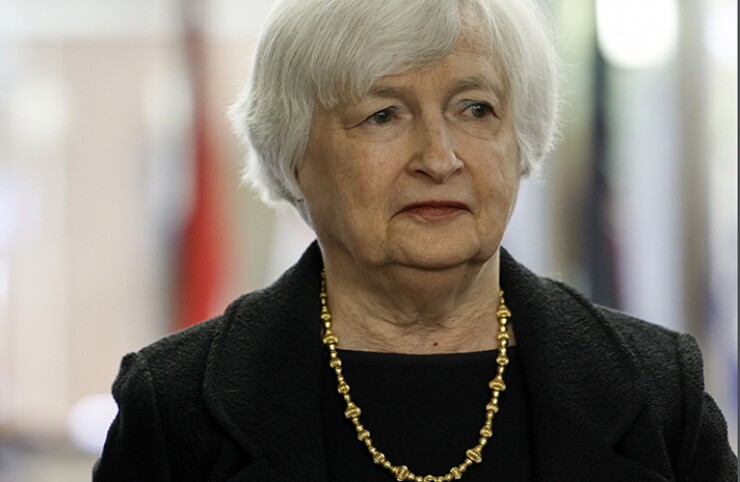The Treasury Department has suspended the sale of State and Local Government Series securities in what it characterized as a necessary move to ward off the threat of a default.
The suspension is effective for demand deposits and time deposit securities beginning May 2 until further notice, Treasury said. Those subscriptions received by the Bureau of Fiscal Service before 10:00 a.m. on May 2 will be issued on the date requested.
Talks surrounding lifting the debt limit cap have been ongoing for months, but in a move that is somewhat unusual for Treasury, it left the SLGS window
SLGS are special purpose securities that Treasury issues to state and local governments to assist with compliance of federal tax laws and IRS regulations governing the investment of cash proceeds generated from a tax-exempt bond issuance.

The closing of the window typically causes inconvenience and increased costs to state and local governments, and are typically used in three ways: as escrows for current refundings, equity defeasance escrows which are yield restricted, and longstanding advance refunding escrows. The last time Treasury suspended SLGS was in July 2021 and the window has been closed 15 times since 1995.
But the role of SLGS has been largely diminished since the Tax Cuts and Jobs Act of 2017 eliminated tax-exempt advance refunding.
For the month ended April 28, 2023, there was over $100 billion outstanding in SLGS and all outstanding SLGS count against the federal government's debt limit, Treasury said.
Talks about raising the debt limit have intensified in recent weeks, and House Republicans just introduced the Limit, Save and Grow Act, which would raise the debt ceiling by $1.5 trillion through March 2024, and cut $4.8 trillion in spending.
The bill would also clawback unused pandemic funds, although Republicans have not detailed exactly which funds would be rescinded. The Congressional Budget Office estimates that the bill would permanently cancel $56 billion in budget authority and $30 billion in outlays over the 2023-2033 period.
Phillip Swagel, director of the Congressional Budget Office also ramped up his pressure on Congress to make a deal.
"Because tax receipts through April have been less than the Congressional Budget Office anticipated in February, we now estimate that there is a significantly greater risk that the Treasury will run out of funds in early June," Swagel wrote in a statement.





